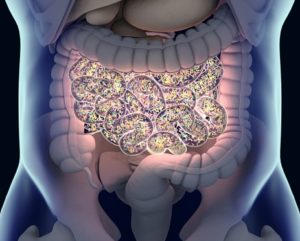Researchers at the University of Michigan Health Rogel Cancer Center discovered a mechanism responsible for severe gastrointestinal issues resulting from immune-based cancer treatment. Their study revealed that immune checkpoint inhibitors used in cancer therapy can induce colitis, leading some patients to discontinue treatment due to discomfort. To understand this side effect, the team developed a new mouse model by transferring microbiota from wild-caught mice into laboratory mice, allowing them to trace the mechanism of colitis development.
Their research unveiled that colitis arose from changes in the gut microbiota composition, causing hyper-activation of immune T cells and depletion of regulatory T cells within a specific domain targeted by immune checkpoint antibodies. By removing this domain, researchers achieved a potent anti-tumor response in mice without inducing colitis, suggesting a promising strategy to mitigate treatment side effects. Further analysis of human cell studies reinforced the role of regulatory T cells in colitis induction, prompting the team to collaborate with clinical partners for potential clinical trials.
Reference: Fawcett N. Researchers identify why cancer immunotherapy can cause colitis. Michigan Medicine. Published January 5, 2024. Accessed April 3, 2024. https://www.michiganmedicine.org/health-lab/researchers-identify-why-cancer-immunotherapy-can-cause-colitis









